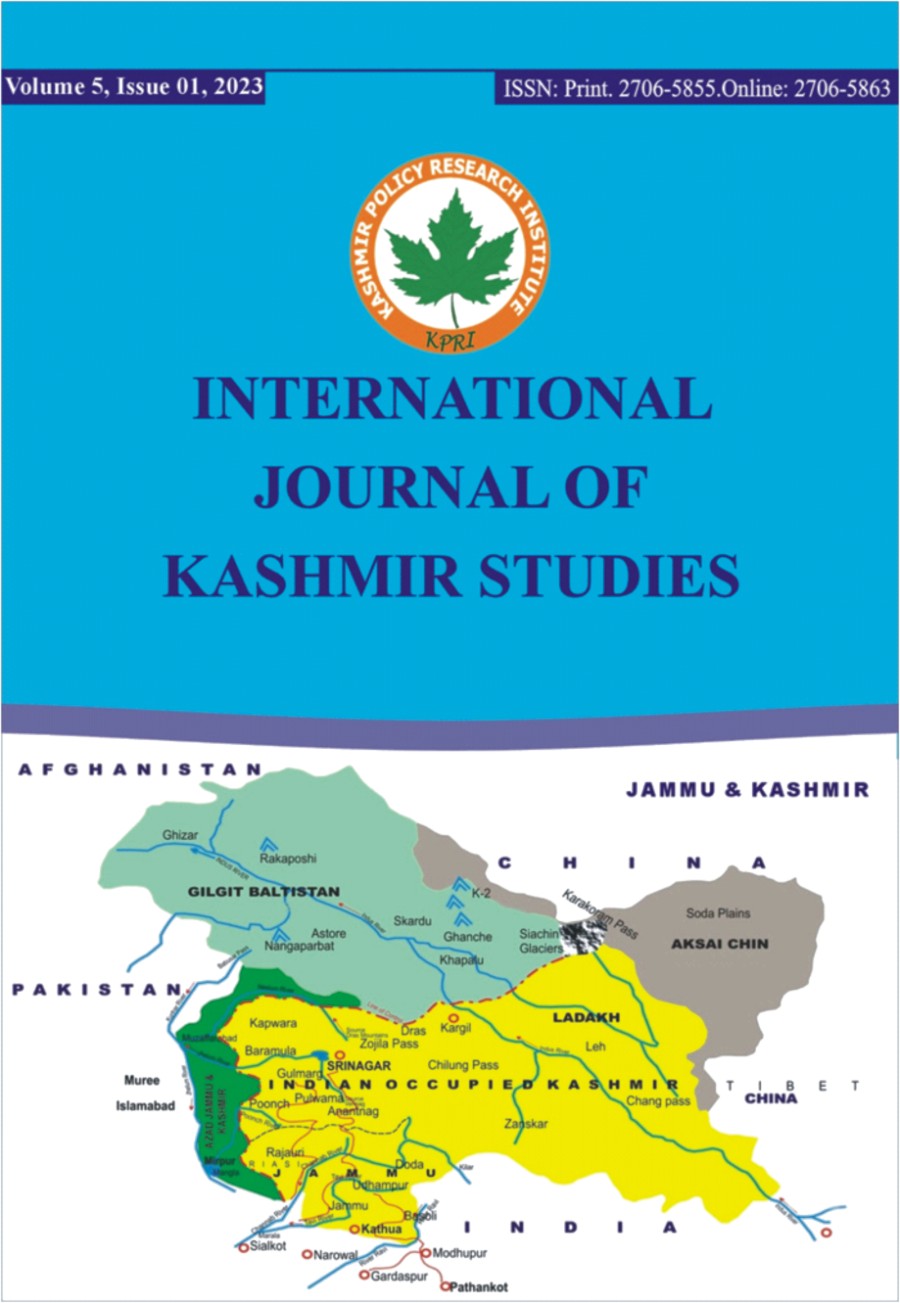Kashmir's Self-Determination Debate: A Critical Analysis of Article 370 Revocation from an International Legal Framework
Keywords:
Kashmir, Article 370, India, Pakistan, International LawAbstract
The issue of Kashmir has remained a longstanding dispute since the sub-continent gained independence from British rule. The United Nations has continuously advocated for a peaceful resolution based on the wishes of the Kashmiri people. However, India has consistently denied these calls for dialogue and resolution, despite having sought UN involvement in the past. This has led to accusations of India being in illegal occupation of the region and violating international law, with reports of human rights abuses in India Held Kashmir (IHK).A significant turning point occurred on August 5th, 2019, when the Indian government unilaterally abrogated Article 370 and Article 35A of the Constitution, which altered the region's demographic landscape. While India has presented legal and governance-based justifications for this move, critics argue that it does not legitimize the autocratic abrogation of Kashmir's special status, given its disputed nature between India and Pakistan for over seven decades.This abstract highlights the most contentious aspect of India's actions—the demographic alteration of Kashmir—considered by many as a tyrannical step aimed at depriving Kashmiris of their right to self-determination. Amidst allegations of long-standing human rights abuses, this study critically examines India's actions from a legal perspective, analyzing the potential violations of international law resulting from the revocation of Kashmir's special status. By shedding light on this complex issue, the study aims to contribute to a broader understanding of the legal implications surrounding India's actions in Kashmir.

Downloads
Published
How to Cite
Issue
Section
License
Copyright (c) 2023 Zaheer Abbas

This work is licensed under a Creative Commons Attribution 4.0 International License.


